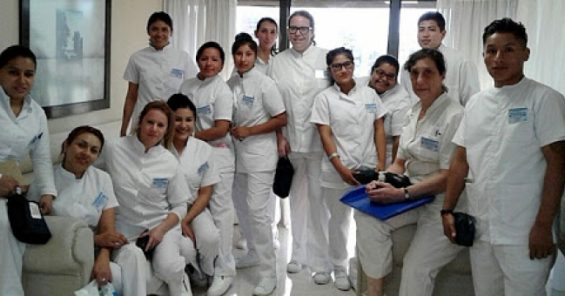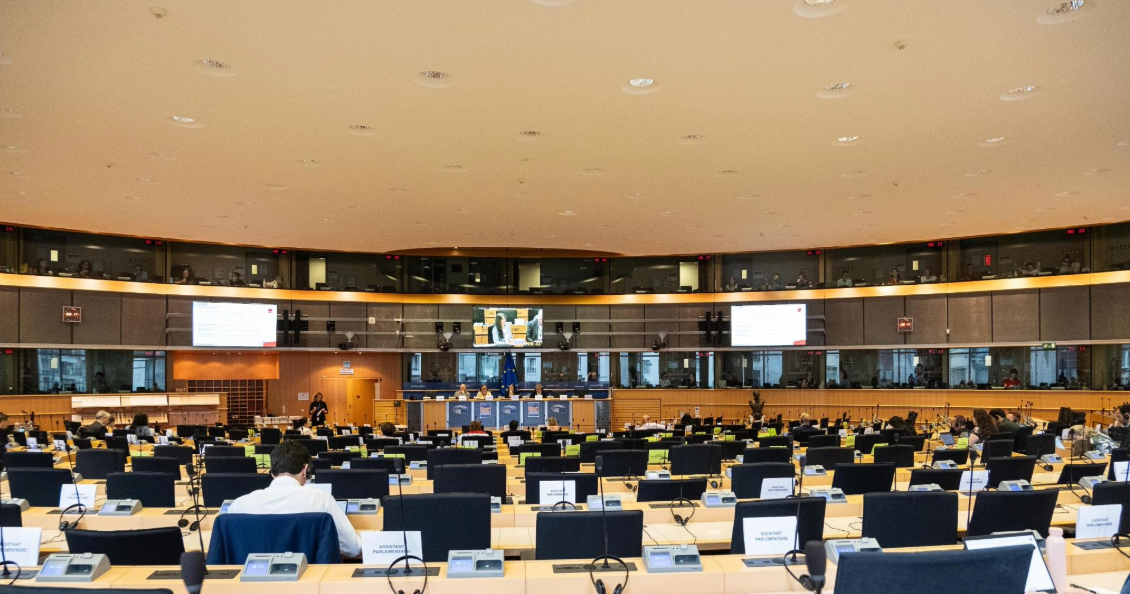Since the very beginning of the pandemic, Fatsa and all its affiliates have been involved not only in demanding adequate and safe conditions for the workers they represent, but also in engaging with the community as a whole by making available their hotels and other facilities that could be necessary for the care of quarantined patients. Thus, Fatsa and different union organizations agreed to offer their hotel infrastructure to face the pandemic and contain the health emergency in Argentina. The facilities will be adapted to receive low complexity cases and to have isolation areas for the mildest cases of Coronavirus.
Early on March 8, with the occurrence of the first cases in the country, Fatsa addressed the Minister of Labour of Argentina requesting the implementation of a number of emergency actions for all public and private health sector workers who are dedicated to the care and assistance of patients affected by the coronavirus.
The statement on Health, signed by Héctor Daer, Deputy Secretary of the Federation and President of UNI Americas, and by General Secretary, Carlos West Ocampo, says that “compliance with protocols that guarantee the health of workers” is expected, and states the need to make rapid progress on the “protection” of health personnel. There is also a claim that workers who were in contact with infected people and were not wearing adequate protective gear, have the right “not to provide their services” and stay home from work with fully-paid leave for a specified period as prescribed by the health authority.
In a prompt response to this request, the National Executive Power resolved that all public and private sector workers who are in quarantine (voluntary or under public health orders) will continue to earn their full salaries while out of work. During the enforced quarantine, the Executive Branch has taken other exceptional measures aimed at alleviating the difficult situation faced by the sectors most affected by the consequences of this crisis.
Héctor Daer said: “We are deeply concerned about the situation of hundreds of thousands of workers in our continent who will not have paid leave if they are required to undergo quarantine due to the expansion of Covid19. Many of them will not even have paid sick leave. The Argentine government had a remarkably positively reaction to our requests. It is essential to guarantee workers’ wages because today the fear of loss of income can cause the crisis to worsen.”
On the other hand, for the heroes and heroines who are today in the front line of the pandemic, the salary adjustment achieved on March 20 is essential. As Atsa’s internal statement says, “In a context where we are facing the COVID-19 pandemic with a health system in a critical situation, we have managed to finish the 2019 joint negotiation process, reaching a 53.8% total increase.”
In addition to this, on March 27 the Executive Branch recognized the commitment and responsibility of the Health workers, granting them an incentive consisting of four monthly instalments of $ 5,000 pesos, which will be included in the wages of the coming months.
It is also important to consider the situation of the public health sector in the Province of Buenos Aires, as it has the highest rate of infected people and a more fragile hospital infrastructure. All health unions have come together to present a common front, over and above their differences, calling for better working conditions for medical and nursing staff. Accordingly, they have sent a common request to the health and labour ministers of the province on items such as the need to resolve the labour precariousness situation of 2,500 hospital workers who are interns and have been waiting for permanent job confirmations since the last year of the Macrista administration.
They also question the leave system that the provincial government has implemented, specifically with respect to the groups considered “at risk”. They highlight that “in contradiction with the regulations issued by the national authorities”, it leaves out pregnant women, people over 60 and workers who suffer from certain pathologies. “It also does not include parents or adults in charge of child or adolescent care,” he added.
All Fatsa affiliates are keeping a close watch on the pandemic, putting the union structure at the service of the workers. Atsa Buenos Aires, for example, is carrying out very active union work with delegates performing online supervision on how the situation is developing in health care facilities, making sure that the staff has all the necessary protection. This is being done in all the affiliates in the country.
As Héctor Dáer says: “The union organizations are the people of Argentina, that is why we are always present where we are needed. At the service of workers and society. For the present and the future of our country. Together we will get through this.”
Miguel Zubieta, General Secretary of the Public Health Union (SPP in Spanish) and World President of UNI Care, expressed his concern about the situation of health workers. “We know that in many cases both public and private health sector workers are overwhelmed by the pandemic, without adequate protective gear, effective isolation measures, and respect for their fundamental rights. Many times we have talked about making health and care workers visible. Right now, society needs them more than ever. Let’s hope that when this nightmare is over, governments and companies recognize the enormous sacrifice they make every day,” he concluded.


